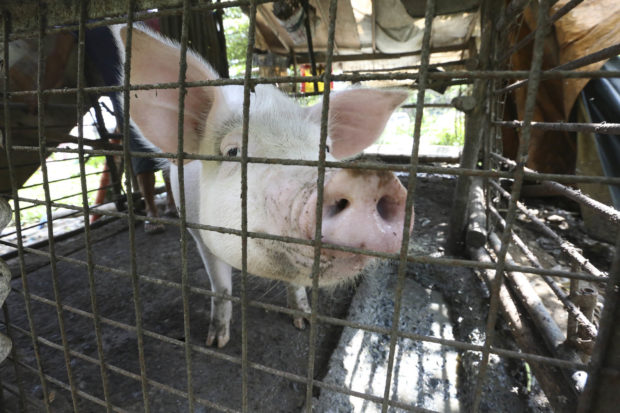429 cities, towns free of African swine fever
MANILA, Philippines — More than 400 cities and towns across the country have not recorded any new cases of African swine fever (ASF) for at least 90 days, the Department of Agriculture (DA) said, with some localities already declaring some areas to be swine fever-free.
Given these developments, Rieldrin Morales, Bureau of Animal Industry (BAI) director, said the local livestock industry may be able to “adapt proactively” against the threats of the hog virus in three years, but noted that the total elimination of ASF still remains uncertain.
“This is ASF. We cannot really forecast. Spain even eliminated their backyard [farms] and it still took them 30 years to eradicate the virus. This is a tall order,” he said in a text message.
“[By] three years we will be able to be on top of the situation. By then, we can somehow be confident that we can be able to adapt proactively but not necessarily eliminate the virus,” Morales added.
A memorandum circular that the DA published last week showed that some 429 cities and towns nationwide had recorded no new ASF cases, 336 of which had maintained the record for more than 180 days.
Article continues after this advertisementAreas where ASF has been eradicated are given a surveillance period of 90 days before it can be declared swine fever-free and be effectively “released” from ASF quarantine status. Morales clarified, however, that local ASF-free declarations still have to be verified by the DA.
Article continues after this advertisementHog repopulation
Obtaining an ASF-free status may allow an area to begin repopulation efforts, depending on the agency’s zoning map. Under the DA’s P2.4-billion repopulation program, beneficiaries are entitled to receive piglets, feed, veterinary drugs, biologics and antiviral agents during the first six months of the repopulation program.
The spread of swine fever in the country since 2019 continues to hurt the local livestock industry, as it incurs billions of losses annually. During the first quarter, production of the livestock sector shrank by 23.2 percent, which accounted for 14.2 percent of the country’s total agricultural output.
Declines were recorded across all kinds of livestock but the highest contraction was registered in hogs at 26 percent.
Its impact was not only felt by the agriculture industry as it also translated to higher food prices and to a higher inflation rate, prompting authorities to impose tariff cuts on pork imports, impose a suggested retail price in markets, and increase the DA’s funding through the Bayanihan Act.
